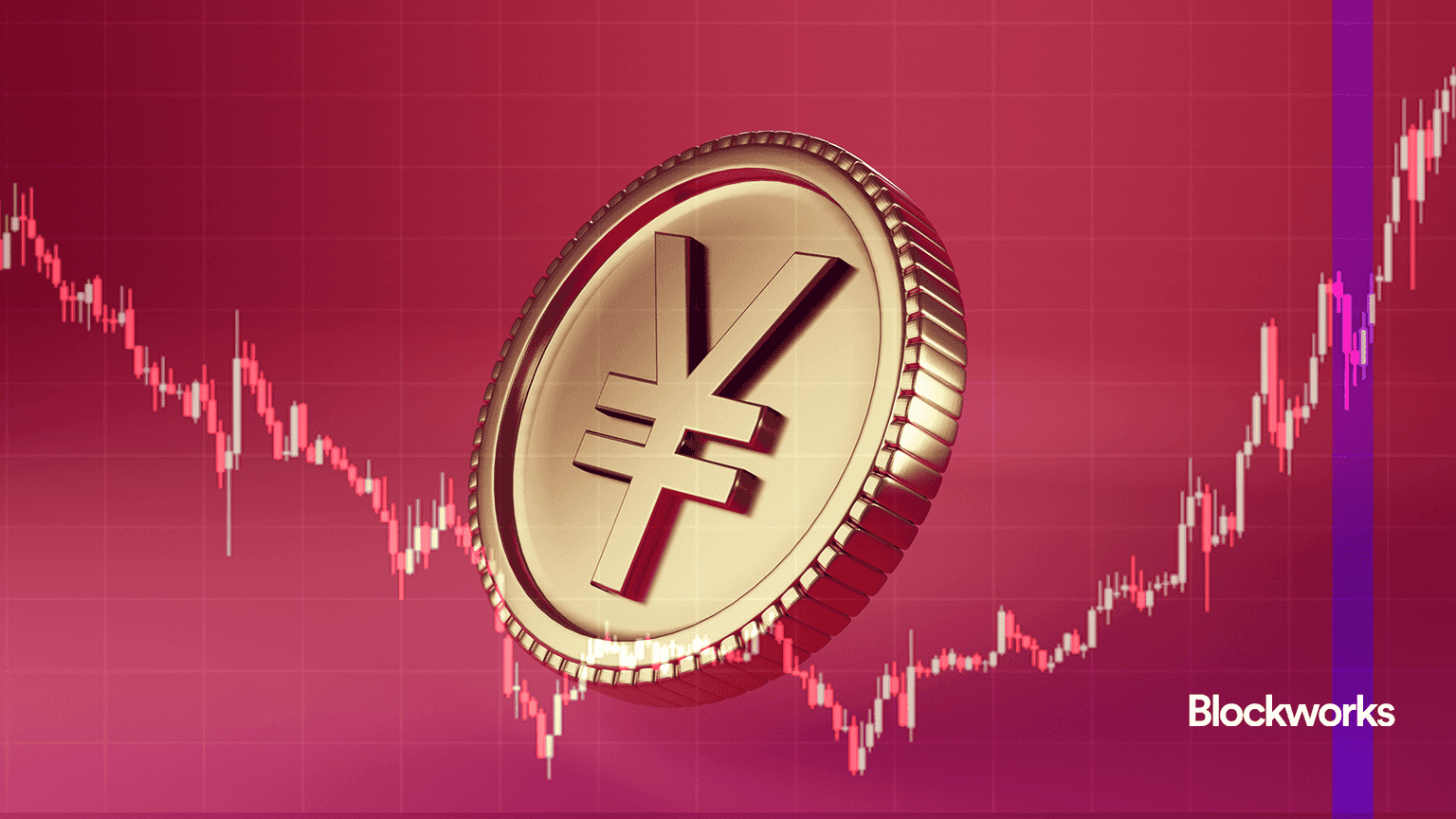Bitcoin treasury strategies proliferate in a high-inflation world
The number of companies buying BTC is likely to go up “as inflation continues to erode the purchasing power of cash,” analyst says

愚木混株 cdd20/Unsplash modified by Blockworks
More companies are hoarding bitcoin for their treasuries — a tactic made famous by Michael Saylor-led MicroStrategy.
And these maneuvers are set to become more common, industry watchers say, as BTC gains traction in an elevated inflation environment.
DeFi Technologies became the latest to reveal such a move, noting Monday BTC is now its “primary treasury reserve asset.” The company bought 110 bitcoins, noting the asset is “a reasonable hedge against inflation and a safe haven from monetary debasement.”
The company’s stock price jumped roughly 13% on Monday before dipping about 7% on Tuesday. It was up 46% in the past five days and 180% year to date as of yesterday’s close.
Metaplanet was looking to become “Asia’s first MicroStrategy” in April, company board member Jason Fang said in an X post at the time. The Japanese investment firm put 1 billion JPY (about $6.6 million) into bitcoin — its “strategic treasury reserve asset” — and revealed Tuesday it bought 23.3 more BTC.
Medical tech company Semler Scientific bought $40 million of BTC in May. Then last week, it bought an additional 247 BTC for $17 million in cash.
Share prices for Metaplanet and Semler Scientific were up 197% and 74%, respectively, from a month ago at Tuesday’s close.
Whether these firms look to emulate MicroStrategy, use a gimmick to boost their share price or genuinely believe in BTC, the macro landscape makes the decision less taboo than perhaps it once was.
MSTR’s success, a changing landscape
Companies have surely seen the success of MicroStrategy in recent years, sure. But industry watchers said they are not necessarily just looking to be copycats.
Saylor’s business intelligence company started stashing bitcoin in 2020. Its pile grew to 214,400 BTC as of April 26 — worth $14.3 billion on Tuesday morning.
Read more: Will MicroStrategy ever stop buying bitcoin?
Tesla in 2021 bought $1.5 billion of bitcoin for “more flexibility to further diversify and maximize returns on our cash,” it said in an SEC filing. The company held $184 million of digital assets on its balance sheet as of March 31.
MicroStrategy stock is up 118% so far this year, and has increased more than 1,000% in the last five years.
This “wildly successful” proof of concept has shown others it can be a prudent way to return value to shareholders, noted Swan Bitcoin research analyst Sam Callahan.
Then there’s the new FASB accounting rules, which make it easier for corporations to hold bitcoin on their balance sheets.
“I expect this strategy to become popular as inflation continues to erode the purchasing power of cash and cash-like equivalents, leading corporations to seek alternatives,” Callahan said.
ProChain Capital president David Tawil said some shareholders may prefer a buyback or dividend instead of companies purchasing BTC. But the possible share price boost from making BTC purchases is also attractive.
“I wouldn’t knock anyone or not take a company seriously saying we need to hold something other than US dollars in treasury,” he explained. “I would have respect for that type of forethought, especially since bitcoin is a tried and true commodity or store of value at this point and has gained worldwide acceptance.”
Tawil added he doesn’t think firms like Semler or DeFi Technologies are necessarily looking to be a “MicroStrategy junior” — noting there likely isn’t room in the market for that.
Rather, he believes companies are using BTC to augment their appreciation of value, or [to attract] shareholders that may find their stock appealing.
Sure, the earlier adopters of this bitcoin treasury strategy may be firms with less to lose. But when a “serious” player jumps aboard — touting that BTC is a good treasury investment and diversifier — “we’re off to the races,” Tawil told Blockworks.
Bitcoin ETF adoption has created BTC price momentum, with pension and retirement fund managers interested.
Read more: Bitcoin ETF snapshot: $2B of inflows, but BTC price stuck
“You couple it with corporate adoption of this as a treasury asset… the upside-downside skew on the price of bitcoin is ridiculous,” he added. “You’d have to be an idiot to bet against bitcoin at that point.”
Get the news in your inbox. Explore Blockworks newsletters:
- The Breakdown: Decoding crypto and the markets. Daily.
- 0xResearch: Alpha in your inbox. Think like an analyst.






